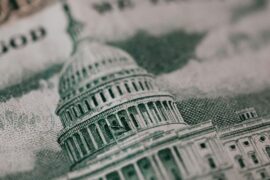This article may contain references to products or services from one or more of our advertisers or partners. We may receive compensation when you click on links to those products or services. Nonetheless, our opinions are our own.
The information presented in this article is accurate to the best of our knowledge at the time of publication. However, information is subject to change, and no guarantees are made about the continued accuracy or completeness of this content after its publication date.
- How Late Payments Affect Your Credit Score
- Credit Scores in the United States
- Factors Influencing Your Credit Score
- How Late Payments Affect Credit Health
- How Debt Affects Your Credit Score
- Steps to Rebuild a Credit Score
- Final Thoughts on Late Payments and Credit Repair
- Frequently Asked Questions
- Recommended Reads
How Late Payments Affect Your Credit Score
One of the most important numbers in your financial life is your credit score. It can affect your ability to get loans, get a place to live, and even the cost of borrowing. But a lot of people don’t know what affects this score or how even small mistakes, like missing a payment, can have big effects for a long time.
Consistent and responsible money habits are what make a strong credit score. To be financially stable, you need to know what affects your score, how late payments affect your credit report, and what you can do to fix the damage.
We’ll discuss credit scores, late payments, and how to fix your credit and avoid repeating mistakes. The information here can help you make better and more confident financial decisions, whether you’re just starting to build credit or trying to get over past problems.
Credit Scores in the United States
How Credit Scores Are Formed
In the United States, credit scores are calculated based on data from your credit reports. These reports include your payment history, credit utilization, length of credit history, types of credit, and new credit inquiries. Each of these categories plays a role in determining your score, which typically ranges from 300 to 850. Higher scores suggest you are a lower credit risk to lenders.
What Happens When You Start Using Credit
When you begin using credit by opening a credit card or taking a loan, you start building your credit profile. Initially, your score is based on very limited data, so early habits have a strong impact. Making payments on time and keeping balances low from the start helps build a solid foundation for future creditworthiness.
Factors Influencing Your Credit Score
What Makes Your Credit Score Change
Several elements can change your credit score, including your repayment history, the total amount of debt you owe, the length of your credit history, new credit accounts, and the types of credit you use. Maintaining a balance across these areas is essential to keeping your score in good standing.
Why Length of Credit History Matters
The age of your credit accounts shows lenders how long you’ve been using credit. Older accounts with positive payment histories add credibility. Keeping long-standing accounts open, even if they’re not used frequently, can benefit your score by demonstrating long-term reliability.
How Credit Applications Can Impact You
Every time you apply for new credit, a hard inquiry is made on your report. While one inquiry may only cause a minor drop, multiple inquiries in a short time can suggest financial stress and lower your score. Only apply for new credit when necessary and space out applications to minimize the impact.
Voted "Best Overall Budgeting App" by Forbes and WSJ
Monarch Money helps you budget, track spending, set goals, and plan your financial future—all in one app.
Get 50% OFF your first year with code MONARCHVIP
How Late Payments Affect Credit Health
Why On-Time Payments Matter
Timely payments show lenders that you can meet your financial obligations. Payment history makes up a large portion of your credit score, around 35%. Just one late payment can significantly lower your score, especially if your credit history is otherwise short or limited.
How Long Late Payments Stay on Reports
Late payments generally stay on your credit report for seven years from the original delinquency date. While their impact on your score may lessen over time, they remain visible to lenders. The severity increases with how late the payment is: 30, 60, 90, or 120+ days delinquent.
How Debt Affects Your Credit Score
How Debt Is Viewed by Lenders
Lenders assess your debt to determine your ability to repay new loans. A high level of existing debt signals greater risk and may lead to higher interest rates or loan denials. Managing debt wisely by keeping balances low and paying on time helps maintain lender confidence.
Different Debts and Their Effects
Credit cards, mortgages, auto loans, and personal loans all affect your score differently. Credit cards influence your utilization rate, while installment loans show long-term repayment behavior. Balancing both responsibly can demonstrate a well-rounded credit profile.
Managing Debt to Protect Your Score
To protect your credit score, focus on paying down high-interest debts first. Avoid maxing out credit cards and limit the number of open accounts with balances. Use budgeting tools to track expenses and stick to a repayment plan that prioritizes long-term financial health.
Steps to Rebuild a Credit Score
What to Check First
Start by reviewing your credit reports for inaccuracies or outdated information. Request your reports from Equifax, Experian, and TransUnion through AnnualCreditReport.com. Dispute any errors you find by submitting written claims with supporting documentation to the credit bureaus.
Why Timely Payments Help
Making on-time payments consistently is the most effective way to rebuild your score. Even minimum payments show reliability. Setting up reminders or automatic payments reduces the chance of forgetting due dates and helps establish a positive payment record over time.
How to Improve Your Utilization Rate
Paying down credit card balances and keeping usage below 30% of your total credit limit is essential. Ask for a credit limit increase if your account is in good standing, but avoid using the extra credit. Spread balances across multiple cards if needed to reduce the percentage used on each.
When to Get Professional Help
If you’re overwhelmed, reach out to a certified nonprofit credit counselor. These professionals can help develop a personalized debt management plan and may negotiate better repayment terms. Counseling won’t hurt your score and may offer the guidance you need to recover faster.
Final Thoughts on Late Payments and Credit Repair
Understanding how late payments and debt influence your credit score is the first step toward recovery. Staying consistent with timely payments, monitoring your credit report, and managing your credit use wisely will set you on the right path. Take action early, seek help when needed, and build habits that protect your financial health in the long term. Credit repair is a gradual process, but persistence and discipline make it possible.
Frequently Asked Questions
Can one late payment affect my credit score?
Yes, a single late payment can have a noticeable impact. If it’s more than 30 days late, it can be reported to credit bureaus and may cause your score to drop. The longer the delay and the more frequent the missed payments, the more serious the damage to your credit profile.
How can I improve my credit score after defaulting?
Start by making all future payments on time and reducing your credit balances. Check your credit reports for errors and dispute any inaccuracies. Over time, positive activity will outweigh past defaults, especially if you avoid new late payments and manage credit wisely.
Is it possible to remove a default from my credit report?
Defaults typically stay on your credit report for up to six or seven years. However, if the information is incorrect or the result of identity theft, you can dispute it. Providing proper documentation can lead to corrections or removal of the entry if the bureau agrees with your claim.

Reviewed and edited by Albert Fang.
See a typo or want to suggest an edit/revision to the content? Use the contact us form to provide feedback.
At FangWallet, we value editorial integrity and open collaboration in curating quality content for readers to enjoy. Much appreciated for the assist.
Did you like our article and find it insightful? We encourage sharing the article link with family and friends to benefit as well - better yet, sharing on social media. Thank you for the support! 🍉
Article Title: Default Credit Score: The Truth About Late Payments and Debt
https://fangwallet.com/2025/07/18/default-credit-score-the-truth-about-late-payments-and-debt/The FangWallet Promise
FangWallet is an editorially independent resource - founded on breaking down challenging financial concepts for anyone to understand since 2014. While we adhere to editorial integrity, note that this post may contain references to products from our partners.
The FangWallet promise is always to have your best interest in mind and be transparent and honest about the financial picture.
Become an Insider

Subscribe to get a free daily budget planner printable to help get your money on track!
Make passive money the right way. No spam.
Editorial Disclaimer: The editorial content on this page is not provided by any of the companies mentioned. The opinions expressed here are the author's alone.
The content of this website is for informational purposes only and does not represent investment advice, or an offer or solicitation to buy or sell any security, investment, or product. Investors are encouraged to do their own due diligence, and, if necessary, consult professional advising before making any investment decisions. Investing involves a high degree of risk, and financial losses may occur including the potential loss of principal.
Source Citation References:
+ Inspo
There are no additional citations or references to note for this article at this time.












































